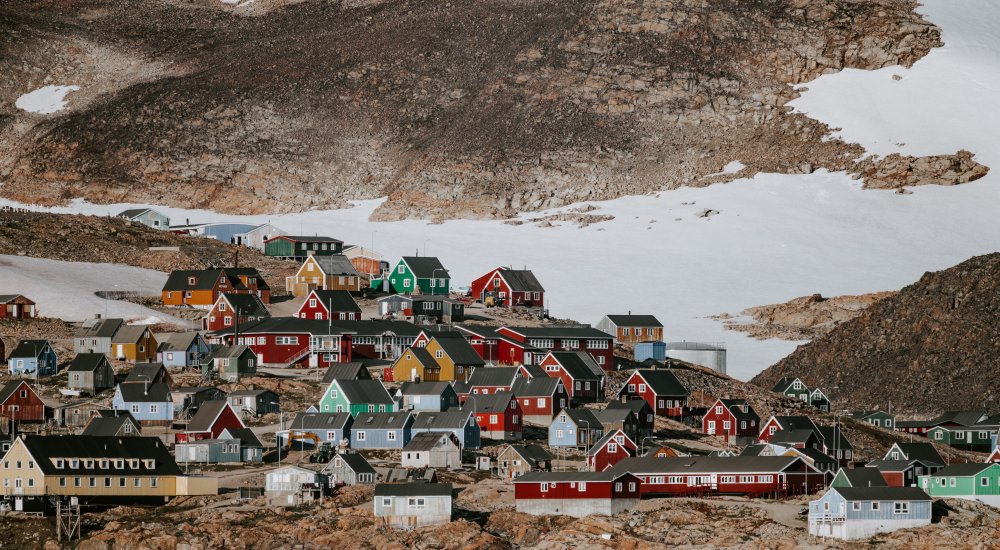HORIZON EUROPE┋Participation and empowerment of Arctic coastal, local, and indigenous communities in environmental decision-making
HORIZON-CL6-2024-COMMUNITIES-01-3

Expected Outcome
Proposals should contribute to the sustainable and inclusive development of Arctic coastal, local and indigenous communities, supporting the implementation of the European Green Deal and the EU policy for a peaceful, sustainable and prosperous Arctic, incorporating a better understanding of the environmental, socio-economic, cultural and demographic drivers of change in the Arctic region.
Activities are expected to empower Arctic coastal, local and indigenous people to act for change through capacity building and education actions, leading to positive long-term prospects for all, including women, young people and vulnerable groups.
The research should explore and document traditional environmental knowledge (TEK) of Arctic coastal, local and indigenous peoples, contributing thus to safeguarding and valuing the cultural identity of the Arctic; explore interactions between local and indigenous knowledge holders and scientists and develop innovative ways to mobilise this knowledge for climate change adaptation, ecosystem restoration and socio-economic goals.
Project results are expected to contribute to the following expected outcomes:
- Better understanding of how different types of knowledge, including traditional environmental knowledge (TEK)[1], are being mobilised; how scientists and local and indigenous knowledge holders cooperate and dialogue in this context;
- Empowerment of Arctic coastal, local and indigenous people and sectors to innovate[2] for the ecological transition and feel part of it, through participatory methodologies (i.e. a multi-actor approach); to engage in decision-making about their environment and livelihoods;
- Explore, with different actors, and recommend ways to bring traditional, local, and scientific knowledge into the collective effort of solving matters of concern, including (choose at least 2 from the items below):
-Adaptation and mitigation to climate change, ecosystem restoration and environment protection;
-Socio-economic changes in the Arctic, ranging from local level (subsistence economies, local livelihoods) to circular economy, fishing, international trade, shipping routes, tourism, and the socio-economic impact of climate change;
-Health and well-being, taking a One Health approach[3];
-Gender aspects, in the context of current economic and social development and future challenges, inter alia relating to climate and environmental issues.
Scope
Addressing ongoing Arctic environmental and societal changes requires that all relevant knowledge, indigenous/traditional and scientific knowledge alike, is mobilised to respond and govern the challenges posed by those changes, and communities empowered to take part in environmental decision-making.
Proposals are expected to contribute to sustainable and inclusive development, incorporating a better understanding of the environmental, socio-economic, cultural and demographic drivers of change. They will investigate the participation of indigenous and local communities in the governance of their livelihoods and environmental decision-making. Proposals should explore how different ways of knowing, worldviews and perspectives can be brought in dialogue, to enhance understanding and to better respond to the impacts of climate, environmental and related socio-economic changes on Arctic people’s livelihoods and the environment. Furthermore, how coastal, local, and indigenous communities could be empowered via participatory research processes, to get involved in environmental decision-making. Proposals should identify opportunities for partnerships and co-production of knowledge based on indigenous and scientific ways of knowing.
Proposals should explore how different ways of knowing, worldviews and perspectives can be brought in dialogue, to enhance understanding and to better respond to the impacts of climate, environmental and related socio-economic changes on Arctic people’s livelihoods and the environment. Furthermore, how coastal, local, and indigenous communities could be empowered via participatory research processes, to get involved in environmental decision-making. Proposals should identify opportunities for partnerships and co-production of knowledge based on indigenous and scientific ways of knowing.
Several potential coastal sectors can be addressed, however the proposal will ensure inclusion of marine protection, food security, climate adaptation and resilience strategies, but also other activities such as leisure activities and eco-socio-compatible tourism development in coastal areas.
Projects should include representation from multiple disciplines of research, including environmental, marine, social, cultural, health, design.
Attention should be given to different capacity building and social learning arrangements as well as to innovative governance mechanisms at various levels, and their potential implications for social innovation.
This topic is expected to involve the effective contribution of SSH disciplines. The proposals should adopt a responsible and solidary approach where Arctic local and indigenous communities are seen as research partners, using participatory methods and bottom-up co-creation. Participation of Arctic indigenous partners in the project is encouraged, to be involved from the outset in the co-development of the research proposal. Engaging with local authorities during the project would help increase implementation of the project outcomes and support further uptake.
Projects should build on existing knowledge and integrate results from multiple origins, including other EU, international or national projects. Some cooperation activities with projects financed under Destination ‘Biodiversity and ecosystem services’ and topics of the European Green Deal Call could be included, as well as with relevant projects from other EU programmes, for example the Horizon Europe Missions Ocean, seas and waters and Adaptation to Climate Change.
International cooperation is encouraged, with a strong linkage with the ongoing activities under the All-Atlantic Ocean Research and Innovation Alliance and encouraging participation from countries that take part in the Arctic Science Ministerial meetings.
[1] A definition is proposed in the JRC Report, Arctic Knowledge: Echoes from the North, European Commission, 2021: Traditional/indigenous/local knowledge refers to the knowledge owned by indigenous and local people and communities. It is a living and dynamic knowledge focused on interconnections in the ecosystem. The knowledge is based on a holistic approach and is systematically resilient. Its practice is closely related to land and sea and the lived experience in an environment. It has its own validation methods which are constantly evolving over generations, within communities and families. It is embedded in cultural upbringings and framed within particular worldviews which shape interactions with the environment, all living beings and the management of resources.
[2] More on social innovation can be found here: www.siceurope.eu
[3] The term “One Health” describes a multidisciplinary approach to health risks in humans, animals, plants, and the environment.
